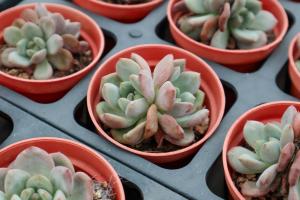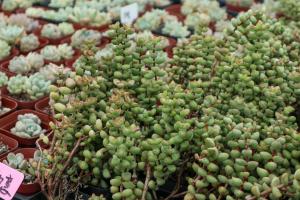Are Biodegradable Plant Pots Good?
Biodegradable plant pots are becoming increasingly popular as a sustainability trend continues to grow worldwide. However, some skeptics question if these pots are really as effective and eco-friendly as they claim to be. In this article, we will explore the benefits and drawbacks of biodegradable plant pots to answer the question: are biodegradable plant pots good?
Pros of Biodegradable Plant Pots
One of the major advantages of biodegradable plant pots is that they decompose naturally, eliminating the need for plastic waste in landfills. Additionally, biodegradable pots provide nutrients to plants as they decompose, which can promote healthy growth. These pots are also versatile and can be used to grow a variety of plants, from vegetables to flowers.
Another significant benefit of biodegradable pots is that they are made from renewable resources, such as cornstarch or bamboo. This means that these containers are biodegradable, minimizing harm to the environment. Additionally, some manufacturers use non-toxic materials that do not harm the soil or the plants growing in it.
Cons of Biodegradable Plant Pots
One of the downsides of using biodegradable plant pots is that they can be more expensive than traditional plastic pots. This is because manufacturing these pots requires specialized equipment and materials. As a result, biodegradable pots may not be a cost-effective option for large-scale commercial growers.
Another issue with biodegradable plant pots is the length of time they take to decompose. While these pots are made to break down over time, the process can take months or even years. This means that if pots are not disposed of properly, they can still contribute to environmental pollution. Additionally, if the pots are not broken down enough when planted, they may inhibit root development or strength, ultimately impacting plant growth.
Conclusion
Overall, biodegradable plant pots are an excellent option for home gardeners who want to reduce their environmental impact. They are made of renewable resources and decompose naturally while also providing nutrients to the plants. However, commercial growers may find them too expensive for large-scale use. Additionally, it is essential to dispose of the pots correctly to prevent environmental pollution and ensure optimal plant growth.
Despite the cons, biodegradable plant pots present a valuable and eco-friendly alternative to traditional plastic pots. They provide a sustainable option for those looking to reduce their carbon footprint and support the environment.

 how many times do yo...
how many times do yo... how many planted tre...
how many planted tre... how many pine trees ...
how many pine trees ... how many pecan trees...
how many pecan trees... how many plants comp...
how many plants comp... how many plants can ...
how many plants can ... how many plants and ...
how many plants and ... how many pepper plan...
how many pepper plan...































